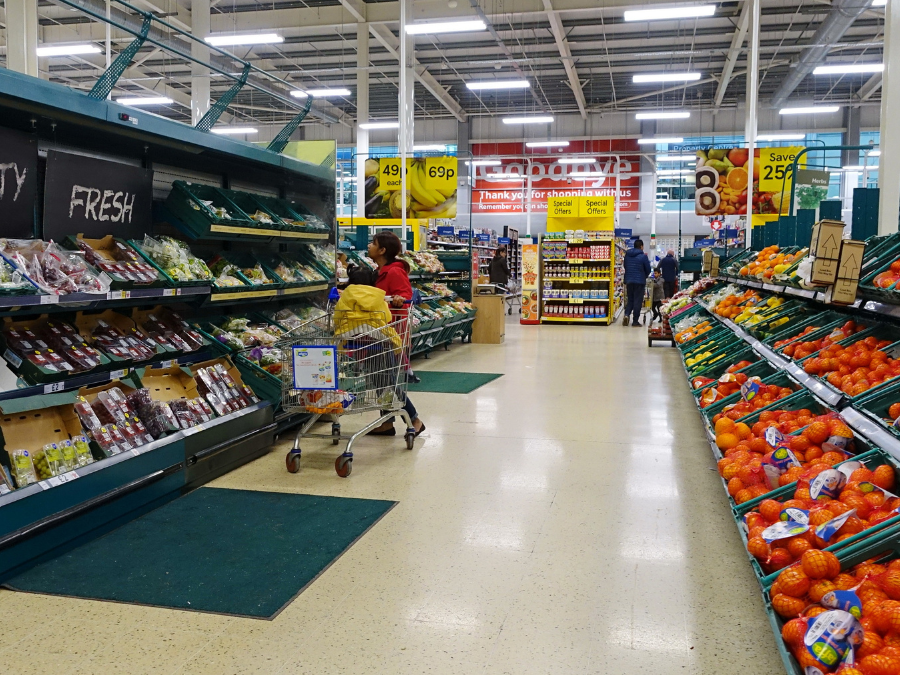
UK grocery inflation has continued to ease in July, marking the steepest drop in inflation since the peak in March, according to a new report.
Market researcher Kantar reported grocery price inflation has fallen 1.6 percentage points to 14.9% in the four weeks to 9 July. The group added take-home grocery sales over the same period grew by 10.4% compared with 12 months ago.

Discover B2B Marketing That Performs
Combine business intelligence and editorial excellence to reach engaged professionals across 36 leading media platforms.
UK grocery inflation now stands at 15.9% for the 12-week period ending 9 July 2023, according to Kantar.
Prices are rising fastest in markets such as eggs, cooking sauces and frozen potato products.
The market researcher said UK consumers would have spent £683 ($893) more on their annual grocery bill to buy the same items as they did a year previously, but consumers have adapted their habits to limit this increase.
The average annual increase in household spending over the past 12 months actually stands at £330.

US Tariffs are shifting - will you react or anticipate?
Don’t let policy changes catch you off guard. Stay proactive with real-time data and expert analysis.
By GlobalDataFraser McKevitt, head of retail and consumer insight at Kantar, said: “Grocery price inflation has now been falling for four months in a row. That will be good news for many households although, of course, the rate is still incredibly high.”
McKevitt added promotional spending has gone up for the first time in two years which could “signal a change in focus by the grocers who had been concentrating their efforts on everyday low pricing, particularly by offering more value own-label lines”.
He said: “The boost to promotional spending has contributed to bringing inflation down but this isn’t all that’s driving the change. Prices were rising quickly last summer so this latest slowdown is partially down to current figures being compared with those higher rates one year ago.”
Official data for overall UK inflation in June will be published tomorrow (19 July). According to the Office for National Statistics, UK food and beverage prices eased in May for the second consecutive month, although headline inflation remained static.
Elsewhere today, UK banking group Lloyds has reported UK food producers have cut prices for the first time in three years as cost pressures are beginning to ease.
Food and drink producers charged their customers, including wholesalers and retailers, less in June compared to the previous month, according to the latest report.
The monthly reading from 60 in May to 49.4 in June. Any score below 50 indicates price reductions, whereas a higher score means prices increased.
This is the first time since February 2020 that prices have been reduced month-on-month.





